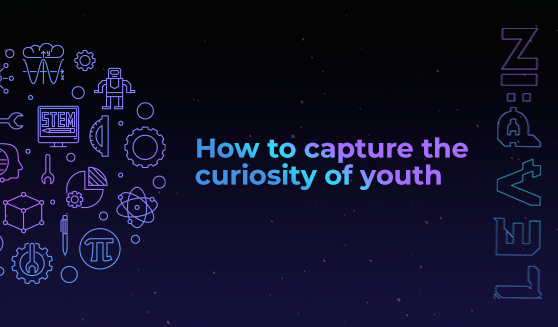

How to capture the curiosity of youth

Welcome to the 233 new techies who have joined us since last Friday. If you haven’t already, subscribe and join our community in receiving weekly tech insights, updates, and interviews with industry experts straight to your inbox.
This week we’re quoting Marco Quarta (Co-Founder and CEO at Rubedo Life Sciences)
What Quarta said:
“I had my first inspiration when I was five years old – that’s when I decided I wanted to study ageing and find a way to change how we age. A year later, I put together my first lab; small but with a real microscope, anatomical model and chemistry kit, thanks to gifts and donations from scientists in my family.”
Yes, but…not all scientists start at five
True. And we’re not saying they should – five-year-olds should be able to enjoy their childhood with a sense of freedom and ease. It just so happened that Quarta found his joy in science.
But something stood out to us: he had scientists in his family, and it was them who helped him pursue his interests at that early age.
What if they hadn’t been there? If he hadn’t been supported and encouraged to develop that interest, would he be leading an innovative science and technology company today?
And this isn’t just a question about families. Crucially, it’s a question about STEM education in schools and local communities – because for kids with an interest in science and tech, the exploratory opportunities they’re offered in education can make or break their passion.
Early years STEM still doesn’t reach everyone
It’s important to acknowledge that we’ve come a long way – and STEM for young children is more adaptive and exciting than it was in the past. Educators are working hard to capture that natural inspiration and show young people that their curiosity could enable them to become talented (and valuable) contributors to the future of science.
But there’s still a long way to go to make sure that children from all walks of life get to experience enriching STEM activities at a young age.
A number of startups have emerged to provide early years opportunities in the field. For example, KiwiCo is a STEM subscription for kids – delivering age-appropriate experiment kids to families on a regular basis.
But services like this are expensive. They’re only accessible for families with significant disposable income – and not all of our future innovators are born into privilege like that.
Why is it important to capture kids’ imaginations so young?
It’s not about putting pressure on four-year-olds to become scientists. It’s about capturing their natural curiosity and giving them opportunities to pursue their interests if they want to. Because just like Quarta, that curiosity can lay the foundations for a fulfilling (and potentially world-changing) career if it’s treated with encouragement, care, and respect.
Early years STEM can:
- Help children understand the world around them and build confidence and self-esteem.
- Create the foundations for skills that will serve them throughout their lives – including critical thinking, problem-solving, collaboration, and communication.
- Help children approach school and higher education with strong foundations in the basic principles of STEM.
- Create space for fun and creative learning that taps into natural curiosity, and drives more curiosity about how the world works.
- Increase the likelihood of children achieving academic and career success.

So how can early years STEM reach more children?
STEM starts at home – with day-to-day activities that utilise science and technology. From baking a cake to cleaning a window, household experiences can introduce children to the basics; so educating parents and guardians about how to enhance those experiences and make the most of them as learning opportunities is key.
But at the same time, it’s important to remember that not all children have home lives that are conducive to this kind of learning, for a huge variety of reasons. And community-based opportunities are really important for them.
That means:
- Fun, affordable (or free) workshops to introduce STEM concepts through play.
- Opportunities for young children to spend time in nature with adults who can notice and guide their curiosity, introduce learning activities, and answer their questions.
- Childcare providers who are trained to ask open-ended questions and encourage children to think through problems in their own way.
- Inspiring STEM learning venues (we love science museums) that are free for families to access and full of interactive and engaging learning opportunities.
For young children to benefit from early years STEM, we need a culture of curiosity to be created and protected by childcare providers, families, and community event leaders. Because if children learn that their curiosity is valued, they’ll keep asking questions – and eventually, they’ll come up with answers that the adults of today can’t begin to imagine.
Quarta said:
“I started to play science back then, but I never stopped.”
And all children should have the chance to play science for their rest of their lives if they want to.
Read our interview with Marco Quarta: Why should we turn back the clock on ageing?
Have an idea for a topic you'd like us to cover? We're eager to hear it! Drop us a message and share your thoughts.
Catch you next week,
Richard McKeon
Group Marketing Director
Mark your calendars for 📅 10-13 February 2025.





